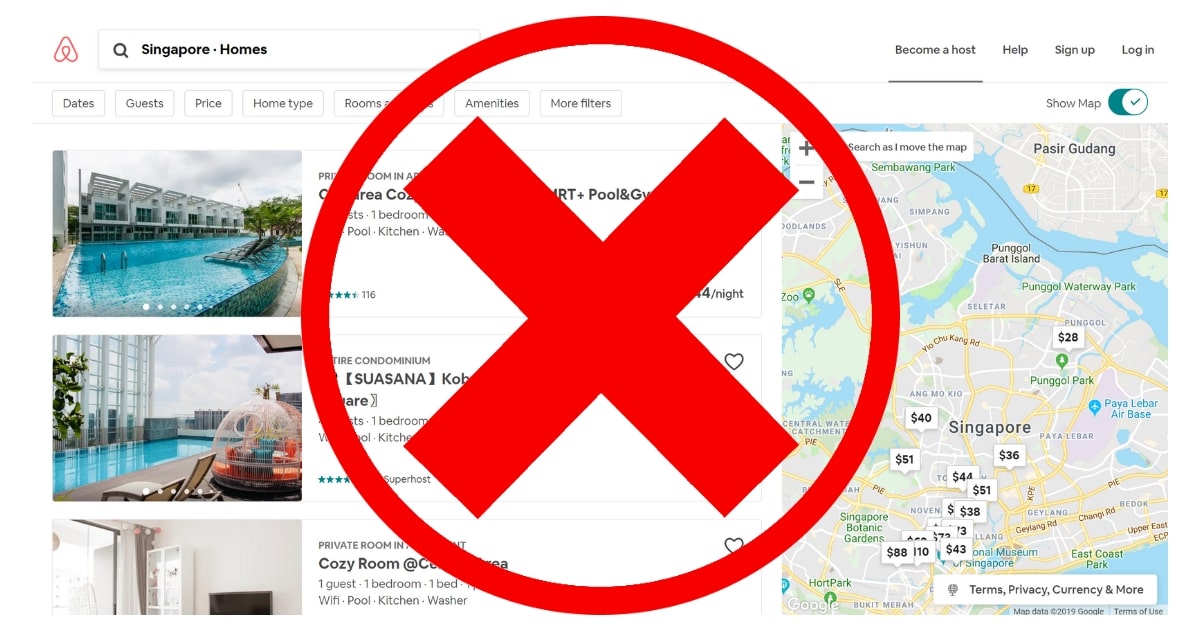The Urban Redevelopment Authority (URA) said last month it would consider a proposal that would allow homeowners to rent their properties out for short periods of time (thus allowing them to legally use home-sharing platforms like Airbnb). However, URA announced today that they have decided not to implement the proposal and will maintain the status quo, under which home rental leases shorter than three months in duration are illegal.
In a press release, URA said the decision was made “after extensive consultations with diverse groups of stakeholders on the proposed regulatory framework.” Those consultations included a national survey, which URA said showed the majority of Singaporean supported the existing laws, and talks with home-sharing platform operators, who said the proposed rules were overly restrictive.
“Given this impasse, URA will not proceed with the proposed regulations at this stage,” the release said, adding that the authority will continue to monitor the situation and remain open to reviewing the regulations in the future.
The release noted a number of concerns about short-term rentals raised by Singaporeans, including privacy and safety issues.
Even if URA’s proposal had been implemented, it would have placed a number of hurdles in front of homeowners who wanted to monetize their property through short-term rentals, such as an 80% consent threshold at strata-titled developments and a 90-day cap on short-term stays per unit within a year. The release explained that such limitations were broadly approved of by survey respondents.
Airbnb’s head of public policy for Southeast Asia, Mich Goh, told The Straits Times that the announcement was a “disappointing” conclusion for the government to reach after nearly four years of consultation with her company, but said Airbnb would continue to work with the government to find solutions.
In response to the rise of Airbnb, URA first passed regulations against short-term rentals in early 2017. The initial law banned any rentals shorter than six months, but later that limit was loosened to three months.
Since the short-term rental ban went into effect, several Airbnb hosts have been charged and heavily fined for violating the law.
Despite the risk, there remain several thousand listings for properties in Singapore on Airbnb.





Reader Interactions